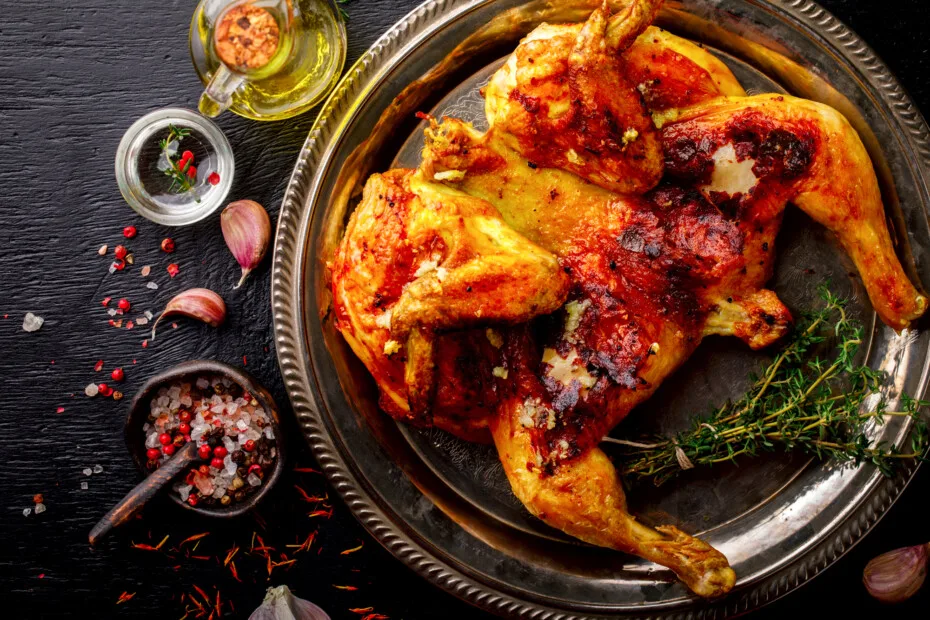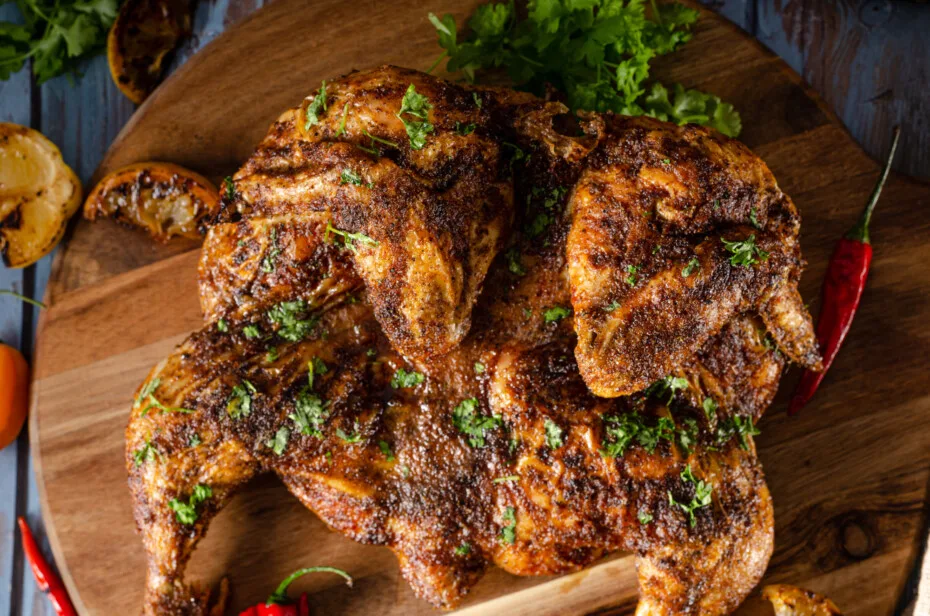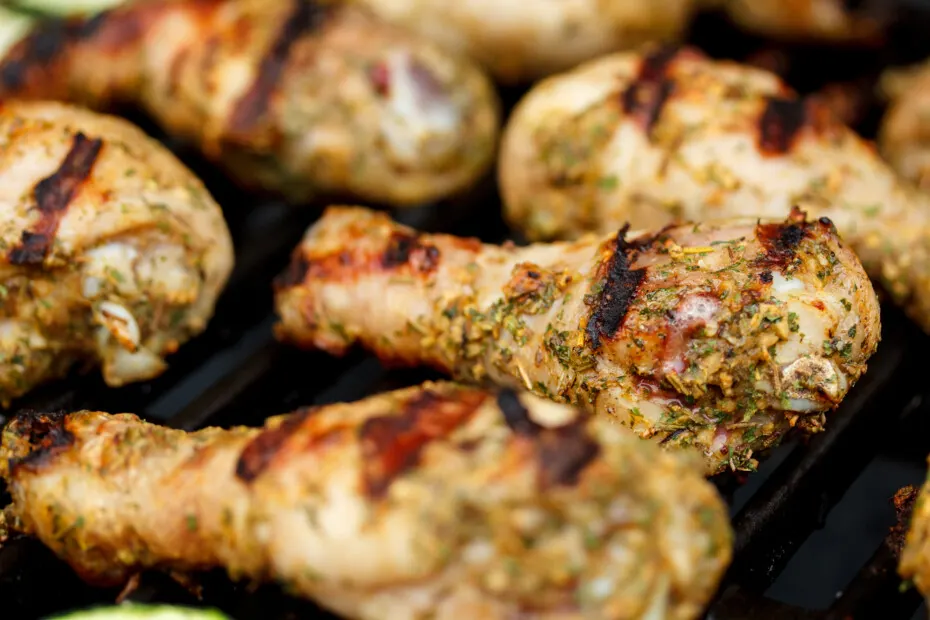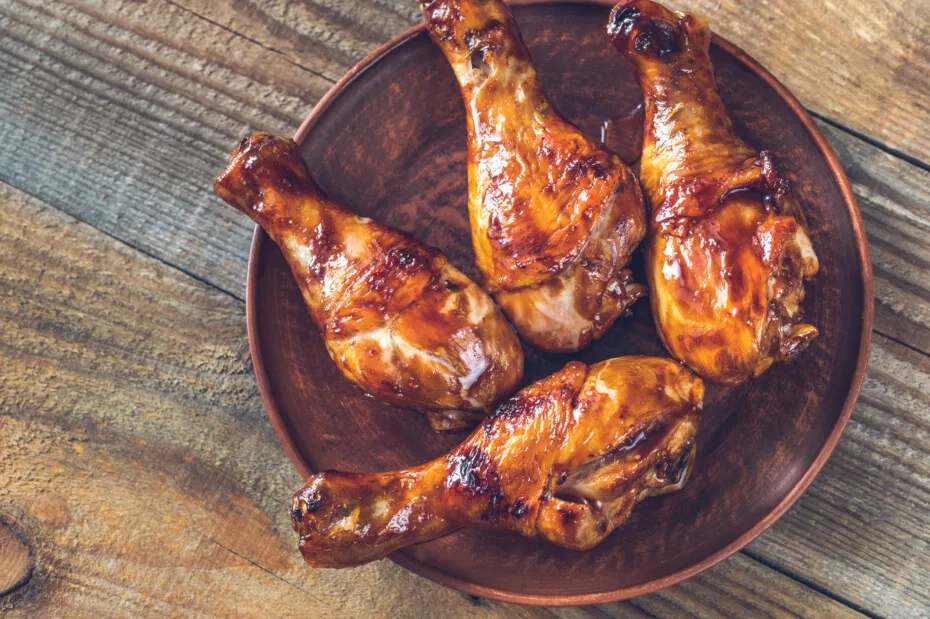Chicken is one of the perfect candidates for grilling. However, how long should it be cooked?
Not all cuts of chicken are cooked in the same amount of time.
Ever cut into an overcooked or undercooked cut of grilled chicken.
Undercooked chicken is not safe for consumption, and overcooked chicken is the driest, most unpleasant food on the planet.
Truth be told, it is very tempting to overcook chicken because you want to air on the side of caution.
Chicken must be cooked to a specific temperature. Undercooking chicken can result in exposure to a foodborne illness.
Therefore, the only logical move is to cook the chicken for as long as possible until it is finished.
Unfortunately, this move would be highly illogical. Chicken is not an easy meat to grill.
There are whole chickens, chicken breast, chicken thighs, and chicken wings.
These cuts have different cooking times, and it can be very challenging to determine which cuts are finished cooking.
Tips for Grilling Chicken
Before we discuss how long to grill chicken, we must discuss some useful tips that will help you yield the best chicken no matter which cut you are grilling.
Thaw Frozen Chicken
Sometimes life gets crazy busy, and we forget to thaw meats.
While throwing a frozen chicken on the grill would be convenient, the results will yield an unevenly cooked chicken.
Some parts of the chicken will be undercooked, while the other parts will be overcooked.
If you know you are going to prepare chicken for dinner or lunch, plan in advance and defrost the chicken.
Pull your chicken out of the freezer, place the chicken onto a rimmed cookie sheet or into a container and thaw it overnight in the refrigerator.
Be sure to place the chicken onto a shelf by itself to avoid cross-contamination.

Season Your Chicken
The only instance chicken should not be seasoned is when you are coating it with BBQ sauce.
Otherwise, the chicken should always be seasoned o matter the cut. There are a few ways you can season your chicken.
Marinades
Marinades work wonders for all cuts of chicken.
Marinades are most often wet, which means they are a combination of herbs, wines, vinaigrettes, spices, pastes, yogurt, buttermilk, and so much more.
Marination time can take anywhere from 30 minutes to 3 hours or overnight.
The amount of acidity in the marinade determines how long the chicken needs to marinate.
Marinades that consist of extremely acidic ingredients such as wine, vinegar, and citrus take about 30 minutes.
Marinating time depends on the cut of chicken and the thickness of the meat.
Marinades made using less acidic ingredients like yogurt and buttermilk take longer.
These ingredients contain lactic acid making it much less acidic and extending the marinating tome to 2-6 hours.
Marinades made of non-acidic ingredients like pastes made with olive oil and herbs and spices take the longest time to penetrate the chicken.
Dry Rub
Dry rubs are the ‘dry’ version o a wet marinade. It contains a combination of salt, spices, herbs, and pepper.
Dry rubs are more popular than wet ribs because the effects are basically instantaneous.
You can marinate your chicken using a dry rub for a few minutes, a few hours, or overnight to allow the flavors to intensify.
Beware that if your dry rub contains sugar, cook your chicken over indirect heat.
If you cook your chicken using direct heat, the sugar and spices will burn and ruin its flavor.
Brine
Like marinades, brines are also great for chicken. A brine usually consists of salt, sugar, water, and aromatic spices such as cloves of garlic.
Brines and marinades are not the same thing. Marinated chicken can be cooked immediately.
On the other hand, brined meat is typically rinsed under running water to remove some of the salt.
Brines are an excellent way to add more flavor and moisture to chicken. It works particularly well for boneless, skinless chicken breasts.
However, boneless skinless chicken breast should only be brined for 2-4 hours. Bone-in chicken can be brined overnight.
Alternatives to Marinades
While marinades are great, some alternatives will work just as well. Save your pickle juice, mix it with your favorite herbs, spices, and a bit of olive oil.
It can be used to brine chicken or as a marinade.
Additionally, you can also use your favorite vinaigrette to marinate your chicken.
However, read the ingredient list to see whether the vinaigrette contains sugar. If the vinaigrette contains sugar, use indirect heat to prevent your chicken from burning.
Use a Meat Thermometer
Though some people will tell you to cook your chicken until the juices run clear, the only way to know whether chicken is finished cooking is to use a thermometer. Some birds are aged more than others.
Unfortunately, the juices won’t run clear until the chicken is already overcooked.
Additionally, boneless chicken will cook faster than boneless chicken, and chicken divided into cuts will cook faster than the entire bird.
A thermometer can give you an accurate temperature reading, and you won’t lose the juices you worked hard to preserve by cutting into the chicken.
Let the Chicken Rest
Whether you are preparing an entire chicken or chicken thighs after the chicken is finished cooking, let it rest, especially if you are carving the meat.
Depending on the cut of chicken, you may want to let it rest for 5 minutes or 10-15 minutes.
Place the chicken onto a platter and loosely cover it with foil. This will allow the juices to redistribute into the chicken.
When To Add BBQ Sauce to Chicken?
Barbeque sauce can make or break any grilled meat. If you add BBQ sauce too quickly, your delicious chicken will turn into a sticky burnt inedible piece of meat.
Unfortunately, BBQ sauce contains sugar which means it will burn very quickly. It is best to save BBQ sauce for the end of the cooking process.
Brush your chicken with BBQ sauce during the final 8-10 minutes of cooking time.
This will allow the barbecue sauce to caramelize and prevent it from burning.

How To Prepare The Grill
While it would be easy to throw the chicken on the grill, you must prep the grill if you want to make the best-grilled chicken.
Preparing your grill is just as crucial as marinating or grilling the chicken.
Clean the Grill’s Grates
Although it seems tedious, you must clean your grill’s grates. If you place food on grates that have not been cleaned, the food will stick to the grates.
Additionally, cake-on grease causes flare-ups and fires.
Luckily cleaning the grill’s grates is super easy. Heat your grill, then brush its grates with a wire-bristle grill brush before and after grilling.
If there is a lot of gunk stuck to your grates, crumple up a piece of foil paper, damp newspaper, or paper bag and use tongs to rub it against the grill’s grates.
Oil the Grill’s Grates
Spreading a little oil on the grill’s grates is a method that ensures your food will not stick to the grill.
When the grates are hot, add a little oil to a paper towel, and use a pair of tongs to carefully rub the oiled paper towel on the grill’s grates.
Preheat the Grill
Never place chicken onto a cold or inadequately heated grill. The chicken will stick to the chicken.
Whether your grill is a charcoal or gas grill, it must be preheated to medium. Gas grills preheat a little faster than charcoal grills.
Gas grills will take about 10 minutes to heat up, while charcoal grills take about 30 minutes to heat up.
Open vs Closed Grill
Closing the grill would be like placing your chicken into an oven. The biggest benefit of a closed grill is that it promotes even heat circulation.
A closed grill is best suited to large, unflattened chicken breast, whole chicken, or bone-in chicken pieces.
An open lid created a concentrated heat source at the bottom of the meat. It will create the perfect char on the bottom of the chicken without overcooking the meat. It is best for thin chicken breast or charring meat cooked using indirect heat.
Direct Heat vs Indirect Heat
Essentially indirect heat and direct heat represent two different grilling zones. Direct heat the hot side of the grill.
It is usually set up directly over the flames and has a high temperature.
On the other hand, indirect grilling cooks food low and slow.
The temperature is not as high as the direct grilling zone, and food is not cooked over the flame.
Direct heat is best for skewers, hot dogs, hamburgers, steaks, and pork chops. Indirect heat is best for larger meats like a whole chicken, brisket, prime rib. or pork shoulder.

How Long To Grill Chicken
Chicken thighs should not be grilled the same way as a whole chicken, chicken wings, or chicken breast.
Therefore, determining the grilling time of chicken can be somewhat challenging. Grilling time truly depends on the cut of chicken.
Some cuts are thinner, while others are thicker or have a bone.
| Chicken | Time |
| Whole Broiler or Fryer | 18 – 25 minutes per pound |
| Whole Roasting Hen | 18 – 25 minutes per pound |
| Capon | 15-20 minutes per pound |
| Cornish Hen | 45 minutes |
| Bone-In Chicken Breast | 10 – 15 minutes per side |
| Boneless Chicken Breast | 6 – 8 minutes per side |
| Chicken Thighs | 10 – 15 minutes per side |
| Chicken Drumsticks | 8 – 12 minutes per side |
| Chicken Wings | 8 – 12 minutes per side |
Whole Broiler or Fryer
Grilling time for a whole can vary depending on the size of the chicken.
For example, a 3-4 pound whole chicken would take 1 hour-1 hour and 15 minutes, while a 5-7 pound chicken would take about 18-25 minutes per pound which rounds out to 1 hour and 30 minutes or up to 2-3 hours.
No matter the size of your whole chicken, make sure you use indirect heat to grill it.
You can transfer the chicken to the direct grilling zone during the last few minutes of grilling time and cook it until it becomes charred.
Whole Roasting Hen
A roasting hen or roaster chicken is an older chicken that weighs about 5-7 pounds and is 3-5 months old.
Hens are usually female chickens. Like whole chickens roasting hens should be cooked using indirect heat over medium heat.
On average, roasting hens take 18-25 minutes per pound to cook.
Capon
Capons are castrated male chickens. The chickens are castrated early in their lives then fed a specific diet containing porridge and milk.
Capons are like a hybrid between a chicken and a turkey. They are smaller than a turkey and larger than a chicken.
A 4–8-pound capon should be cooked over medium using indirect heat and takes 15-20 minutes per pound.
Cornish Hens
Though there is some controversy on whether Cornish hen hens are chickens, they are chickens.
According to the USDA, Cornish game hens are 1-2 pound male or female chickens that are slaughtered less when they are less than 5 weeks old.
An 18-24 ounce Cornish game hen should be grilled over medium heat using indirect heat for 45-55 minutes.
Bone-in Chicken Breast
As the name implies, bone-in breasts are chicken breasts with the bone attached.
Bone-in chicken breast weighing 6-8 ounces should be cooked over medium heat using direct heat for 10-15 minutes per side.
Boneless Chicken Breast
Boneless chicken breasts are chicken breasts with the bone removes. They are often sold as skinless, boneless chicken breasts.
A 4-ounce boneless chicken breast should be cooked using direct heat over high heat for 6-8 minutes per side.
Chicken Legs and Thighs
Chicken legs and thighs are usually referred to as leg quarters and contain a portion of the leg and thigh meat. The leg quarters are cut into a leg and thigh.
A 4–8-ounce chicken thighs should be cooked over medium-high heat over direct heat for 10-15 minutes per side.
Using direct heat, a 4-ounce chicken drumsticks or legs should be grilled over medium or high heat for 8-12 minutes per side.
Chicken Wings
As the name implies, chicken wings are the wing portion of the bird. They can be left or whole or fabricated into drumettes or wingettes.
A 2-3 ounce wing should be cooked over medium or high heat using direct heat for 8-12 minutes per side.
Final Thoughts
Not every cut of chicken has the same cooking time.
They all have their own grilling times, whether it is chicken wings, a whole chicken, chicken breast, chicken thighs, or legs.

I have been smoking and grilling meat from an early age and enjoy sharing my knowledge and expertise through the hundreds of articles I have written about BBQ. I hope to make everyone’s BBQ journey that little bit easier.

